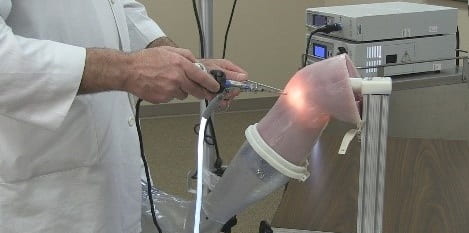
Past Research
The Biomedical Technologies Division supports UTA’s guiding themes of health and the human condition and data driven discovery through the development of clinically relevant devices and systems.
In-vivo functional muscle regeneration utilizing an implantable modular bioreactor
This project explores the possibility of regenerating functional muscles in vivo by utilizing the body’s vascular network combined with a miniature bioreactor containing decellularized scaffolds, engineered extracellular matrix (ECM), and stem cells. A bioreactor is being designed for housing a tissue engineered construct and implanted into animal models. The designed housing will be capable of holding a tissue construct on the surface of subcutaneous tissues as well as allow the tissue construct to freely move when a mechanical stimulus is applied. The objective of the work is to regenerate a functional muscle in vivo by utilizing the body’s vascular network to support tissue growth.
Biodigit
Current methods used in treating hand trauma fall short of restoring functional and aesthetic characteristics after severe injury due to the lack of a protective, permissive, and well-controlled environment required to heal tissues without significant scar formation. In collaboration with Dr. Christopher Allan, MD at the University of Washington in Seattle, the REHEAL Glove aims to overcome the shortcomings of the current methods used in treating hand trauma. The Biodigit/REHEAL glove aims to overcome these shortcomings by incorporating cell-seeded.
Biomask
The Biomask is an advanced therapeutic system for real-time autonomous monitoring and treatment of facial burns for accelerated and higher quality wound healing. This system allows post-surgery wound management by providing capabilities to apply negative pressure wound therapy, deliver therapeutics, and hold skin grafts in place while continuously monitoring the healing process. Researchers at UTARI are collaborating with surgeons at the Institute of Surgical Research at the US Army Dental and Trauma Research Detachment and the Feinberg School of Medicine at Northwestern University.
Knee Model Surgical Simulator
In cooperation with the University of North Texas Health Science Center (UNT HSC), UTARI’s Biomedical Technologies Division developed an arthroscopic knee model surgery simulator for medical training. Using 3D printing and molding, UTARI’s researchers have been able to develop an artificial knee that is a realistic replica of an actual joint. Currently, medical students practice orthopedic surgery with unrealistic models of a knee or virtual reality simulators. Models that do not look and feel like a real knee cannot provide students an accurate representation of real surgery. Virtual reality simulators, while addressing the realistic representation issue, provide no physical reactivity for the student and are cost-prohibitive with a price tag of up to $100,000.
Future commercial applications of this technology could be directed at other joint models, such as the shoulder and elbow, allowing realistic and applicable training on a variety of joints.





